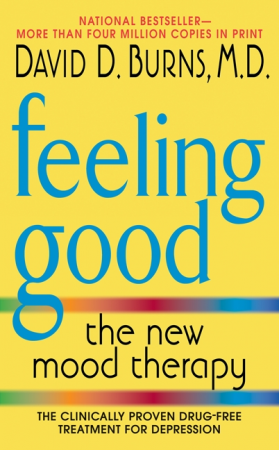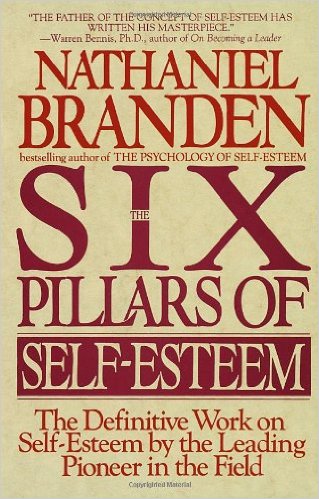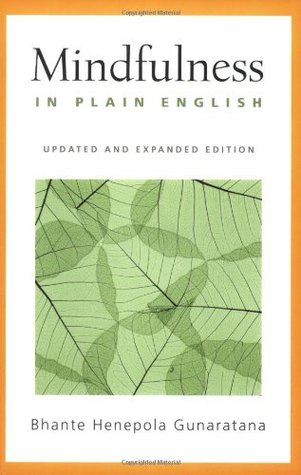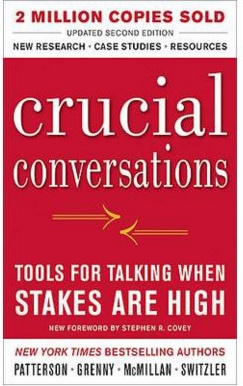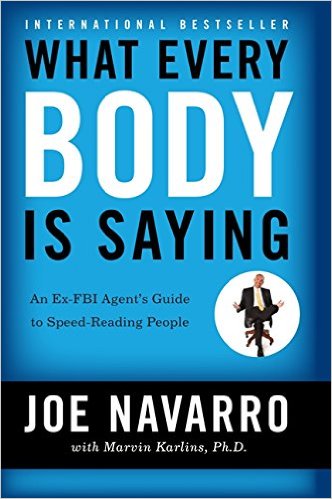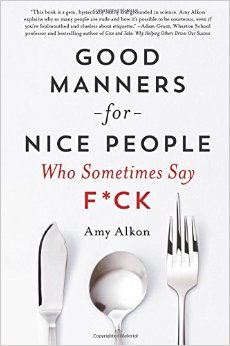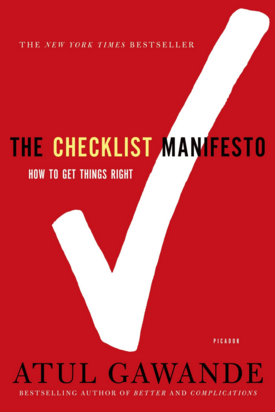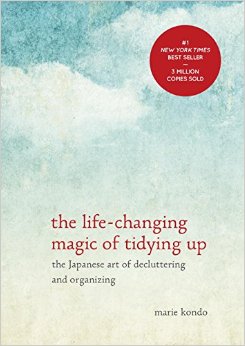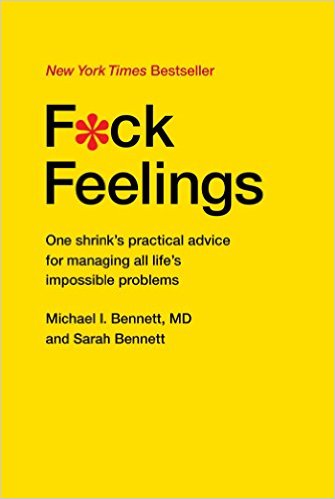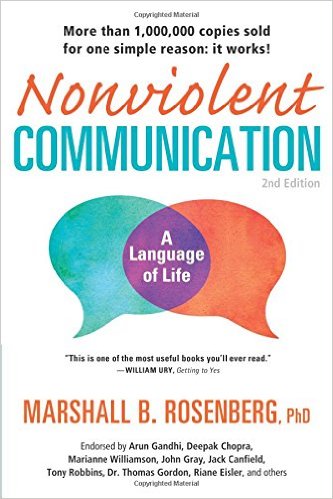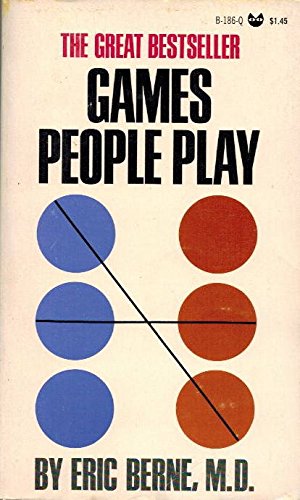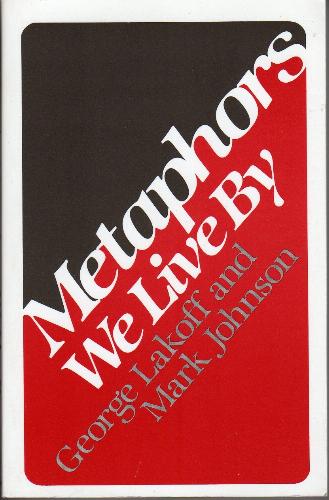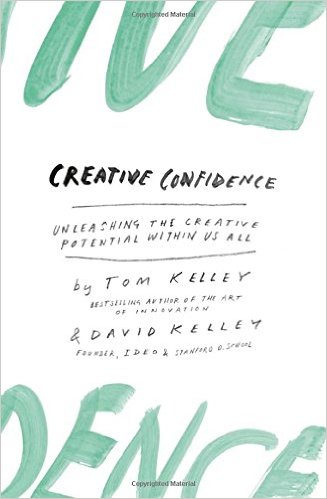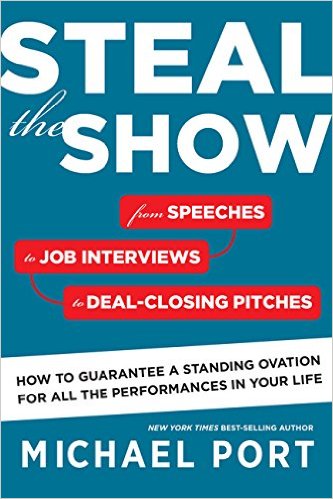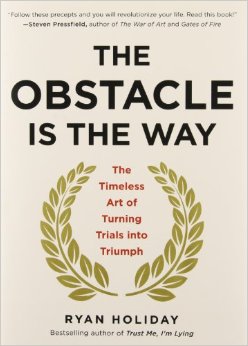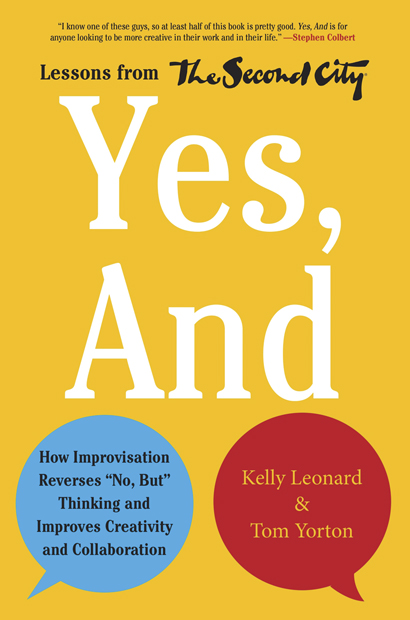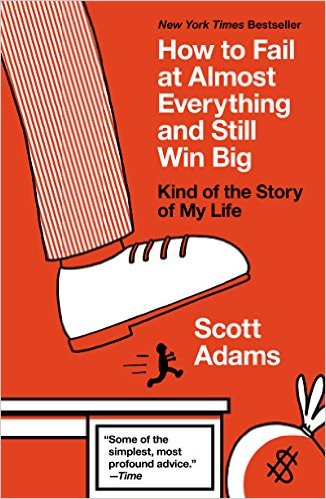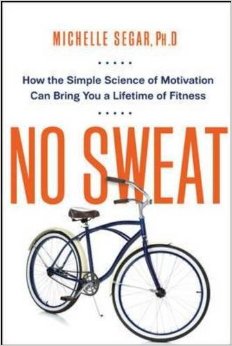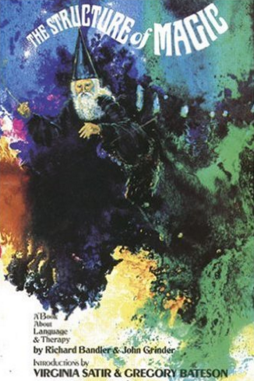← Back
Here is a collection of the best books I’ve discovered about self improvement. If you read these I guarantee you’ll be ahead of 99% of other people.
Feeling Good: The New Mood Therapy
David D. Burns
This is one of the most highly recommended books in self improvement. It’s a complete breakdown of the popular form of therapy known as “Cognitive-Behavioral Therapy” which focuses on how to identify negative ways of thinking (such as “over-generalizing,” “catastrophizing,” and “black and white thinking”) and learn how to reframe your beliefs to be more positive, healthy, and constructive. If you want to learn all of the tools in Cognitive-Behavioral Therapy without needing to hire a therapist or coach, this is a great book to add to your collection.
Small Habits, Big Changes: How the Tiniest Steps Lead to a Happier, Healthier You
Steven Handel
We are what we repeatedly do. Learn how to harness the power of “small habits” to revolutionize your life. This book will teach you everything you need to know about how to build a daily routine that works for you, keeps you energized, and serves your goals in life. Small changes can lead to big changes over-time.
The Six Pillars of Self Esteem
Nathaniel Branden
This is another self improvement classic written by self-esteem expert and psychologist Nathaniel Branden. The book breaks down self-esteem into six different pillars, including 1) Living consciously, 2) Self-acceptance, 3) Taking responsibility, 4) Self-assertiveness, 5) Living purposefully, and 6) Personal integrity. Nathaniel Branden combines a healthy sense of optimism and realism to give you an accurate picture of what it means to have authentic self-esteem, without becoming narcissistic or egocentric.
Mindfulness in Plain English
Bhante Henepola Gunaratana
Mindfulness has become a very popular topic these days. A lot of research has shown the powerful benefits mindfulness meditation can have on our physical and mental health, yet many still don’t know how to practice mindfulness or apply it realistically to their everyday lives. Mindfulness in Plain English is an absolute classic for anyone who wants to learn more about mindfulness and how it works. The book covers a wide range of applications of mindfulness, including not just meditation, but also how to be more mindful when we are eating, walking, cleaning, and just going through a normal day. Once you cultivate mindfulness properly, you can carry it with you into any area of your life.
Crucial Conversations: Tools for Talking When the Stakes Are High
Kerry Patterson and Joseph Grenny
The most important skill you can learn in life is how to have healthy conversations with people. This is especially true for “high stakes” situations like working through marriage problems, asking your boss for a promotion, or apologizing to a friend you’ve hurt. Crucial Conversations shares an amazing framework for how to approach your conversations so that they are as healthy and constructive as possible. It teaches you how to identify warning signs that a conversation is going sour and how to defuse heated arguments before they spiral out of control. By the end of this book, you’ll be equipped with very powerful tools to better your communication skills and persuasion skills in any area of life.
What Every BODY Is Saying: An Ex-FBI Agent’s Guide to Speed Reading People
Joe Navarro
One of the keys to being an effective communicator is to have a proper understanding of body language. Joe Navarro is an ex-FBI agent who has depended on his skills in reading body language and nonverbal signals to do his job, especially to determine if a person is hiding something or trying to be deceptive. This book draws from various research in psychology and Navarro’s personal experiences to provide a wonderful breakdown of how to read body language, complete with helpful pictures so you can learn how to better spot these nonverbal signs in your daily interactions. This is one of the most practical guides on how to read body language that you’ll find.
Good Manners for Nice People Who Sometimes Say F*ck
Amy Alkon
This isn’t your typical book on “good manners” – it’s not focused on just what fork to use or how to dress at a fancy dinner party. Instead, this book offers modern and practical advice on how to be a decent person in the 21st century, including the etiquette that comes with modern technology like cellphones and the internet. Amy Alkon does a phenomenal job combining research in social psychology and evolutionary psychology with commonsense advice and witty humor. This book is chockfull of useful tips and insights that can make a big difference in how you conduct yourself in your everyday interactions. It’s also a really funny and entertaining read that you won’t want to put down.
The Checklist Manifesto: How to Get Things Right
Atul Gawande
As our world becomes increasingly more complex, we have to juggle more information than ever before. This unfortunately makes it far easier to make mistakes or overlook important details. According to surgeon and public health researcher Atul Gawande, one simple solution to this is the power of a checklist. A checklist serves as a type of “cognitive net” that can catch our mental flaws (like limitations in attention and memory), which also frees our mind to do more creative thinking. The book includes great examples of how checklists are utilized in various professions, including among doctors, nurses, pilots, architects, chefs, and investors.
How to Lie With Statistics
Darrell Huff
We’re constantly being bombarded with facts, statistics, and graphs on news sites, blogs, and social media. How can we be a more skeptical thinker in the face of all this information? This book is a great layman’s guide on how to think critically about these facts and statistics you come across on a daily basis – including helpful examples of how they are often manipulated by the media, politicians, and bloggers to prove things that aren’t necessarily true. I originally discovered this book on Bill Gates’ recommended reading list and I’m very thankful I checked it out. This should be required reading in schools.
The Life-Changing Magic of Tidying Up
Marie Kondo
Your mind can often be a reflection of your environment. According to Marie Kondo, this is why living in a clean, organized, and tidy home can be a life-changing experience. Our lives are often filled with so much useless junk that we’ll likely never use again nor do we know what to do with it. The simple act of going through a “tidying marathon” – including throwing away a big portion of your material items that you don’t really need – can have a very liberating impact on your life. When I followed the advice in this book, it had a surprisingly long-term effect on my physical and mental health. We often don’t realize how a messy environment can influence our minds until we actually tidy up and experience it for ourselves.
F*ck Feelings: One Shrink’s Practical Advice for Managing All Life’s Impossible Problems
Michael Bennett
There’s a lot in our lives that we don’t have much control over. Sometimes when pursuing the aim of “self improvement” we try to change things that simply aren’t in our power to change. And instead of learning how to accept some things as they are, we just set ourselves up for failure, disappointment, and frustration. In this book, psychologist Michael Bennett shares a refreshing perspective on life’s many impossible problems, whether they be trying to change other people, or trying to change who we are, including how we think and feel. Awesome chapter titles in this book include “F*ck Self-Esteem,” “F*ck Fairness,” and “F*ck Love.” There’s a lot of thought-provoking insights here if you’re looking to give your mind a jolt.
Nonviolent Communication: A Language of Life
Marshall B. Rosenberg
It’s very important that we are honesty and open when we communicate our thoughts and feelings to others, but at the same time we have to learn how to do this in a peaceful and non-confrontational way that doesn’t make people feel like they are being attacked or manipulated. For many, honesty and peace can be difficult things to balance in any relationship, but this book provides a really helpful and practical system for becoming a more honest and peaceful communicator in our lives. This is one of the most insightful books I’ve ever read on relationships, and I truly believe the lessons in this book can be world-changing if they were applied on a bigger scale.
Games People Play
Eric Berne
We often play many games between ourselves and others. But by “games” I don’t mean sports, or video games, or board games. Instead “games” are a form of dishonest communication – usually with ulterior motives involved. In the classic book Games People Play, psychologist Eric Berne explores the many different games people play with each other. These include games among friends, employees, bosses, and romantic couples. By learning the various games people play, we can more easily identify them in our everyday lives. Ultimately, the goal is to stop playing these games and instead engage in more honest communication. This is a very influential book in social psychology that shares many important lessons on the harmful games we play in so many of our relationships.
Metaphors We Live By
George Lakoff and Mark Johnson
Metaphors are a great way to use the power of language to change our thoughts, feelings, and perspective. At its core, a metaphor is a way to explain one experience in terms of another experience. When we say “life is a roller coaster” we understand how the “ups” and “downs” of a roller coaster are conceptually similar to the “ups” and “downs” of life. New metaphors can help you understand your experiences in a deeper and more meaningful way. In this classic book, cognitive psychologists George Lakoff and Mark Johnson explore the many ways we can use metaphors to change our perspective and build a richer life.
Creative Confidence: Unleashing the Creative Potential Within Us All
Tom Kelley and David Kelley
Do you ever think you’re just not the “creative type?” Well, it’s not true. Creativity isn’t just for artists, musicians, or filmmakers anymore – it’s for everyone. In this fantastic guide, creative entrepreneurs Tom Kelley and David Kelley share a whole toolkit of tips and exercises that will help you build a creative mind that never runs out of new ideas. While creativity can often seem like a random and spontaneous process, this book provides very practical and down-to-earth advice that demystifies creativity and makes it available to anyone who wants to cultivate it.
Steal the Show: From Speeches to Job Interviews to Deal-Closing Pitches
Michael Port
We don’t often think of it this way, but life is often like one big performance. Whether it’s delivering a lecture, going on a date, or meeting a new person – we are often called upon to present our “best self” to others. In Steal The Show, business and marketing expert Michael Port shares a wealth of advice and information on how to become a better performer in both your professional and personal life. Port shares his training in acting and public speaking and shows you how to harness the powers of preparation, rehearsal, and improvisation to guarantee that you deliver the absolute best performance you can in life, no matter what it is.
The Obstacle Is the Way: The Timeless Art of Turning Trials into Triumph
Ryan Holiday
Encountering new obstacles in life is inevitable. Whether it’s in our work, relationships, health, or personal goals, life is always changing – and with that brings new situations we too must change and adapt to. The philosopher Marcus Aurelius one said, “What stands in the way becomes the way.” That is the theme of this excellent book by Ryan Holiday, where he integrates the teachings of the Ancient Greek philosophy of stoicism into a practical and motivating “self help” guide. Interestingly, this book has become popular among many professional sports teams, including New England Patriots, Seattle Seahawks, and Chicago Cubs. The goal of this book is to teach you how to overcome the obstacles in your life by seeing them in new ways and transforming them into an advantage that ultimately contributes to your growth and improvement.
Yes, And: How Improvisation Reverse ‘No But’ Thinking
Kelly Leonard and Tom Yorton
Life rarely follows a script, instead it’s a whole lot of improvisation. To make the most of our lives, we must learn how to “think on the fly” and respond to our environment in real time. Typically we think of “improvisation” as only something for actors or musicians, but the truth is it is a mental skill that applies to every area of life. In this illuminating book, Kelly Leonard and Tom Yorton share their teachings from the legendary Second City improv group, which has had many famous comics as students like Bill Murray, Stephen Colbert, and Tina Fey. The book shares everything you need to know about the practice of improvisation and includes really fun exercises that you can practice alone or with friends to build on your improvisation skills.
How to Fail at Almost Everything and Still Win Big: Kind of the Story of My Life
Scott Adams
Success is often found in an ocean of failure. This is just as true for Scott Adams, most famous for his comic strip Dilbert, as it is for anyone else. In this excellent book, Scott Adams shares his story and his unique approach to his life and his goals. He reveals to you his simple system on how he stays motivated, keeps his energy levels high, and overcomes various forms of failure (career, health, etc.), including his use of popular self improvement tools like hypnosis and self-affirmations. Scott Adams has a very practical, “do whatever works” approach to life – and an uncanny ability to turn everything he does into fuel for success and happiness.
No Sweat: How the Simple Science of Motivation Can Bring You a Lifetime of Fitness
Michelle Segar
Exercise is one of those things that everyone knows they should do, yet so many people struggle with it. We join a gym for a couple months, then stop going. We tell ourselves we are going to run on the treadmill every morning, but that doesn’t last long. We say we’re going to start eating healthier, until we get lazy and decide to just order a pizza and wings for dinner. Why is it so hard to stay dedicated toward a healthier lifestyle? In this book, Michelle Segar does a phenomenal job answering this question and then using the latest science in motivation to completely change how you approach your health-related goals. If you’re someone who struggles with making sustainable and long-term changes to your health, this book is a must-read.
The Structure of Magic: A Book About Language and Therapy
Richard Bandler and John Grinder
This classic self-help book explains how language works and how it influences our minds and how we think. One of the most important ideas is that every sentence has a “surface meaning” and a “deeper meaning.” The “deeper meaning” is often something that is being implicitly assumed in a sentence, but isn’t explicitly being said. The lessons taught in this book will give you a keen understanding of how to interpret what others are really saying, and also how to investigate your own thoughts and beliefs. Richard Bandler and John Grinder draw on various ideas in psychology, anthropology, and linguistics to create a very useful framework for interpreting language and the meaning behind it.

